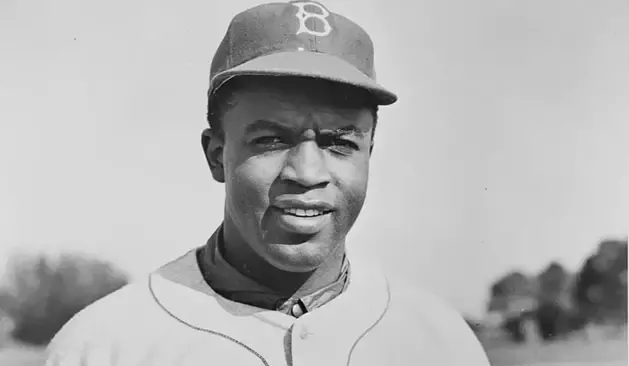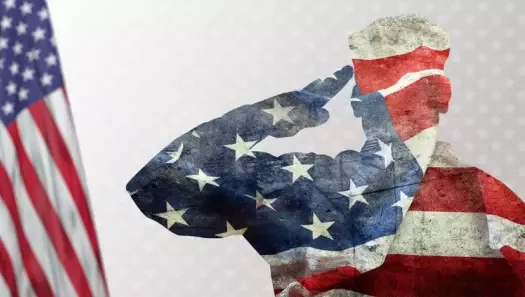WeSalute Awards
HeroVet: Jackie Robinson

This year marks the 75th anniversary of baseball legend Jackie Robinson breaking the color barrier in Major League Baseball – but sports wasn’t the only place he went up to bat for his race. Robinson was an Army veteran who was court-martialed for standing his ground in a segregated military experience during World War II.
The youngest of five, Robinson was born in Georgia in 1919 and given the middle name Roosevelt after President Theodore Roosevelt, who died shortly before he was born. When his family moved to California, he took up several high school sports, lettering in four of them at the varsity level. He went on to attend UCLA and excelled in football, track, and basketball, in addition to the sport that would lead him to fame.
When the U.S. entered the war after Pearl Harbor, 1.2 million Black men ended up serving during World War II, but were regularly treated as second class citizens. The military was racially segregated, mirroring societal norms of that time. In 1942, Robinson was drafted and assigned to an Army cavalry unit in Fort Riley, Kansas and was later reassigned to Fort Hood, Texas, where he joined the 761st "Black Panthers" Tank Battalion.
Two years into his service, Robinson faced a particularly tough moment of racial tension. He was sitting on an Army bus and the white driver asked him to move to the back of the bus. He refused. In his autobiography, Robinson wrote that he told the driver, “The Army recently issued orders that there is to be no more racial segregation on any Army post. This is an Army bus operating on an Army post.” This was 11 years before Rosa Parks’ similar bus incident.
His statement about the events that followed were reprinted in Jackie Robinson: A Biography: “The bus driver asked me for my identification card. I refused to give it to him. He then went to the Dispatcher and told him something. What he told him I don’t know. He then comes back and tells the people that this nigger is making trouble. I told the driver to stop f—in with me, so he gets the rest of the men around there and starts blowing his top and someone calls the MP’s.” Robison was subsequently court martialed and faced numerous charges in the trial that followed. Fortunately, he was acquitted of all charges.
Robinson went on to coach Army athletics until his honorable discharge in late 1944 as a second lieutenant.
Fresh from the army, he returned to his sports career, beginning with the Kansas City Monarchs, a professional baseball team in the Negro leagues. Just two years later, he was asked to join the Brooklyn Dodgers – where history was made, as he became the first Black athlete in the Major Leagues since 1884. He started at first base and played for the next decade, becoming a 6 time all-star, a World Series Champion, and MLB’s Rookie of the Year. His batting average was .313, while racking up 141 home runs.
Robinson was inducted into the Baseball Hall of Fame in 1962. After his death in 1972, he was posthumously awarded the Congressional Gold Medal and Presidential Medal of Freedom in recognition of his achievements on and off the field.
The MLB celebrates Jackie Robinson Day annually on April 15th, which was the opening day of his first season with the Dodgers.



